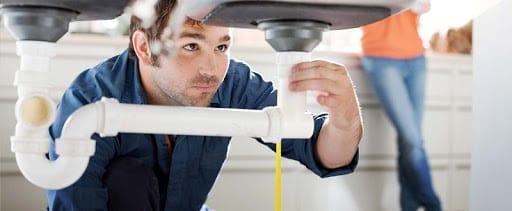
Emergency Plumbing Services: What to Do When You Need Help Fast
Plumbing emergencies are every homeowner’s nightmare. Whether it’s a burst pipe in the middle of the night, a flooded basement, or a blocked sewer line, these situations can cause significant damage to your property if not addressed promptly. When faced with a plumbing emergency, knowing what to do and who to call can make all the difference in minimizing damage and getting your home back to normal as quickly as possible. In this blog, we’ll explore the most common plumbing emergencies, what steps you should take when they occur, and how to find and choose the right emergency plumbing services when you need help fast.
Understanding Plumbing Emergencies
A plumbing emergency is any situation that requires immediate attention to prevent severe damage to your home, health, or safety. Unlike routine plumbing issues, which can be scheduled and handled during regular business hours, emergencies need to be addressed as soon as possible to avoid further complications.
Common Plumbing Emergencies
Here are some of the most common plumbing emergencies that homeowners may encounter:
- Burst Pipes
Burst pipes are one of the most severe plumbing emergencies. They can occur due to a variety of reasons, including freezing temperatures, corrosion, high water pressure, or physical damage to the pipe. When a pipe bursts, it can release a significant amount of water into your home, leading to flooding, structural damage, and the potential for mold growth.
- Clogged Drains and Sewer Lines
A clogged drain or sewer line can cause water to back up into your home, creating a messy and unsanitary situation. While minor clogs may be cleared with a plunger or drain snake, severe blockages—especially those in the main sewer line—require immediate professional attention to prevent sewage backups.
- Overflowing Toilets
An overflowing toilet is not only inconvenient but also poses a health risk due to the potential exposure to harmful bacteria and pathogens. This issue is often caused by a blockage in the toilet or sewer line, and if left unresolved, it can lead to water damage and contamination.
- Water Heater Malfunctions
A malfunctioning water heater can be a serious problem, especially during the colder months. Issues like a leaking water heater, lack of hot water, or unusual noises coming from the unit can indicate a problem that requires urgent repair. In some cases, a faulty water heater can also pose a risk of explosion or carbon monoxide poisoning.
- Gas Leaks
Although not strictly a plumbing issue, gas leaks are often handled by plumbers, as they involve the pipes that carry natural gas into your home. A gas leak is an extremely dangerous situation that requires immediate attention. Signs of a gas leak include the smell of rotten eggs, a hissing sound near gas lines, or dead vegetation around the gas line.
- Leaking or Broken Fixtures
Leaking faucets, broken fixtures, or damaged plumbing components can waste a significant amount of water and lead to higher utility bills. While some leaks may seem minor, they can quickly escalate into more significant problems if not addressed promptly.

Why Plumbing Emergencies Need Immediate Attention
Plumbing emergencies can cause extensive damage to your home if not handled quickly. Here’s why it’s essential to address these issues as soon as they arise:
- Prevent Water Damage: Water damage can compromise the structural integrity of your home, leading to costly repairs. Addressing plumbing emergencies immediately can help prevent water from spreading to walls, floors, and other areas of your home.
- Avoid Mold and Mildew: Standing water and moisture can create the perfect environment for mold and mildew growth. Mold not only damages your home’s structure but also poses health risks to you and your family.
- Protect Your Health: Plumbing emergencies like sewage backups or gas leaks can expose you to harmful bacteria, pathogens, or toxic gases. Prompt action is necessary to protect your health and safety.
- Minimize Repair Costs: The longer a plumbing emergency goes unaddressed, the more extensive the damage can become. By taking swift action, you can minimize repair costs and avoid more significant issues down the line.
Steps to Take During a Plumbing Emergency
When a plumbing emergency strikes, it’s easy to feel overwhelmed. However, staying calm and taking the right steps can help mitigate damage and ensure that the problem is resolved quickly. Here’s what you should do when faced with a plumbing emergency:
1. Shut Off the Water Supply
The first step in any plumbing emergency is to shut off the water supply to prevent further flooding or water damage. Here’s how to do it:
- Locate the Main Water Shut-Off Valve: The main water shut-off valve is typically located near the water meter, which may be in your basement, crawl space, or outside your home. Turning off this valve will stop the flow of water to your entire house.
- Turn Off Individual Valves: If the problem is isolated to a specific fixture, such as a sink, toilet, or washing machine, you can turn off the water supply to that fixture by closing the valve located near it.
- Drain the Pipes: After shutting off the water supply, open the faucets and flush the toilets to drain any remaining water in the pipes. This can help reduce the risk of further leaks or flooding.
2. Assess the Situation
Once the water is turned off, take a moment to assess the situation and determine the severity of the problem. Ask yourself the following questions:
- Is the water continuing to flow or has it stopped?
- Is there visible water damage, and if so, how extensive is it?
- Are there any signs of electrical hazards, such as exposed wires or water near electrical outlets?
- Is there a risk of contamination, such as sewage or chemical exposure?
Understanding the extent of the problem will help you communicate effectively with the emergency plumber when they arrive.

3. Address Immediate Safety Concerns
If the plumbing emergency poses a risk to your safety, take steps to protect yourself and your family. For example:
- Avoid Electrical Hazards: If water is near electrical outlets, appliances, or exposed wires, turn off the electricity to the affected area using your home’s circuit breaker. Avoid standing in water, as it can conduct electricity and cause electrocution.
- Evacuate if Necessary: In the case of a gas leak, evacuate your home immediately and contact your gas company or emergency services. Do not use any electrical devices, such as phones or light switches, as they can create a spark and ignite the gas.
- Wear Protective Gear: If you need to clean up contaminated water or sewage, wear gloves, rubber boots, and a face mask to protect yourself from harmful bacteria and pathogens.
4. Contact an Emergency Plumber
Once you’ve taken steps to mitigate the immediate damage and ensure safety, it’s time to contact an emergency plumber. Here’s how to find the right plumber for the job:
- Search for Local Plumbers: Use a search engine or online directory to find emergency plumbers in your area. Look for plumbers who offer 24/7 emergency services and have positive customer reviews.
- Ask for Recommendations: If you have friends, family, or neighbors who have dealt with plumbing emergencies in the past, ask them for recommendations. Personal referrals can help you find a reliable plumber quickly.
- Check Credentials: Before hiring a plumber, verify their credentials. Ensure that they are licensed, insured, and have experience handling the specific type of emergency you’re facing.
- Provide Details: When you call the emergency plumber, provide as much information as possible about the situation. Describe the problem, any steps you’ve already taken, and the location of the issue. This will help the plumber prepare for the job and arrive with the necessary tools and equipment.
5. Mitigate Damage While You Wait
While waiting for the plumber to arrive, there are a few additional steps you can take to minimize damage:
- Contain the Water: If water is still leaking or pooling, use towels, buckets, or a wet/dry vacuum to contain and remove the water. This can help prevent further damage to floors, walls, and furniture.
- Protect Belongings: Move any valuable items, such as electronics, furniture, or important documents, away from the affected area to protect them from water damage.
- Ventilate the Area: Open windows and doors to allow fresh air to circulate and help dry out the area. This can reduce the risk of mold and mildew growth.
- Document the Damage: Take photos or videos of the damage for insurance purposes. Documenting the extent of the damage can help with any claims you need to file later.

Choosing the Right Emergency Plumbing Service
Finding a reliable and experienced emergency plumber is crucial when you’re dealing with a plumbing crisis. Here are some tips for choosing the right emergency plumbing service:
Look for 24/7 Availability
Plumbing emergencies don’t follow a 9-to-5 schedule, so it’s important to find a plumber who offers 24/7 emergency services. Look for a plumbing company that can respond to emergencies at any time of day or night, including weekends and holidays.
Check for Licensing and Insurance
Ensure that the plumber you hire is licensed and insured. A licensed plumber has the necessary training and qualifications to handle plumbing emergencies, while insurance protects you in case of accidents or damage during the repair process.
Read Customer Reviews
Customer reviews can provide valuable insight into the quality of service a plumbing company offers. Look for reviews that mention the plumber’s responsiveness, professionalism, and effectiveness in resolving emergencies. Positive reviews from satisfied customers are a good indication that you’re choosing a reliable service.
Ask About Response Time
When dealing with a plumbing emergency, time is of the essence. Ask the plumbing company about their average response time for emergencies. A quick response time is essential to minimizing damage and getting your home back to normal as soon as possible.
Get a Clear Estimate
Before the plumber begins any work, ask for a clear and detailed estimate of the costs involved. While emergency services may come with additional fees, a reputable plumber should provide a transparent estimate that includes labor, materials, and any other charges. Avoid plumbers who are hesitant to provide an estimate or who give vague pricing information.
Verify Experience with Similar Emergencies
Different plumbing emergencies require different skills and expertise. Make sure the plumber you hire has experience dealing with the specific type of emergency you’re facing, whether it’s a burst pipe, sewer backup, or water heater malfunction. An experienced plumber will be better equipped to diagnose and resolve the problem efficiently.

Preventing Future Plumbing Emergencies
While some plumbing emergencies are unavoidable, there are steps you can take to reduce the likelihood of future issues:
Schedule Regular Plumbing Maintenance
Regular plumbing maintenance is key to preventing emergencies. Schedule annual inspections with a licensed plumber to check for potential issues, such as leaks, corrosion, or worn-out components. Early detection and repair of minor problems can prevent them from escalating into emergencies.
Insulate Pipes in Cold Weather
Frozen pipes are a common cause of burst pipes during the winter months. Insulate exposed pipes in unheated areas, such as basements, attics, and crawl spaces, to protect them from freezing temperatures. Additionally, keep your home’s thermostat set to a consistent temperature, even when you’re away, to prevent pipes from freezing.
Be Mindful of What Goes Down the Drain
Clogged drains and sewer lines are often caused by improper disposal of grease, food particles, hair, and other debris. Avoid pouring grease down the drain, use drain covers to catch hair, and dispose of food waste properly. Regularly clean your drains to prevent buildup and clogs.
Know the Location of Your Main Water Shut-Off Valve
In the event of a plumbing emergency, knowing the location of your main water shut-off valve can help you quickly stop the flow of water and prevent flooding. Make sure everyone in your household knows where the valve is located and how to turn it off.
Install a Sump Pump in Your Basement
If your home is prone to flooding, consider installing a sump pump in your basement. A sump pump helps remove excess water from the basement, preventing flooding and water damage during heavy rains or plumbing emergencies.
Test Your Water Heater Regularly
Regularly testing and maintaining your water heater can help prevent malfunctions and extend its lifespan. Check for leaks, unusual noises, or fluctuating water temperatures, and schedule professional maintenance if needed.
Plumbing emergencies can be stressful and costly, but being prepared and knowing what steps to take can help you navigate the situation with confidence. By shutting off the water supply, assessing the situation, addressing immediate safety concerns, and contacting an experienced emergency plumber, you can minimize damage and get your home back to normal as quickly as possible.

Leave a Reply